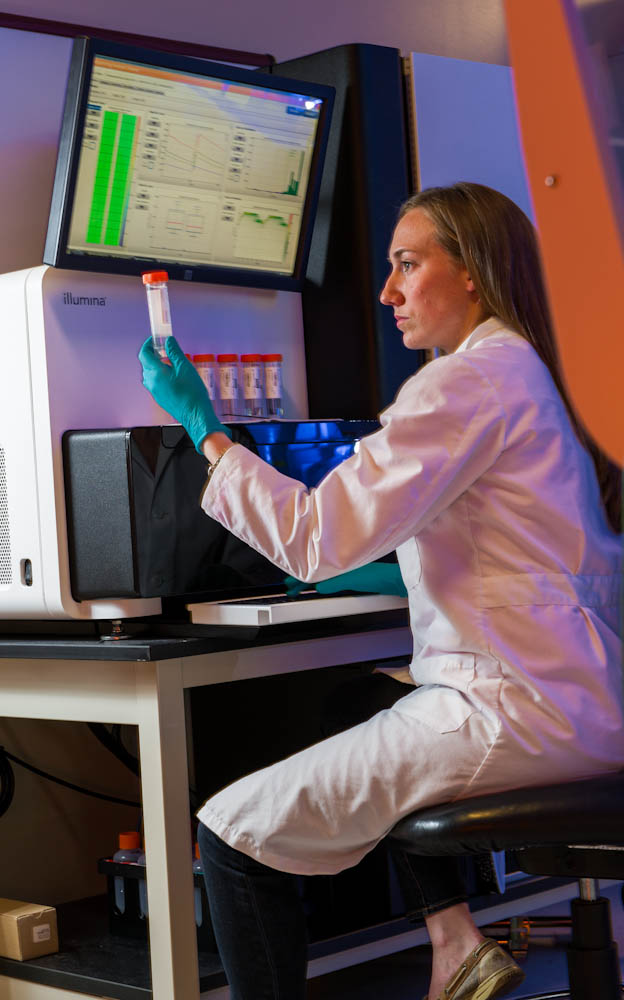A boost in funding for research on genetic causes of cancer and “tailored” cancer treatments will be a major focus of the new Precision Medicine Initiative.
President Barack Obama is requesting an increase of $215 million in the 2016 budget, to launch the effort “to bring us closer to curing diseases like cancer and diabetes – and to give all of us access to the personalized information we need to keep ourselves and our families healthier.” Of that total, $130 million is slated for the NIH for development of a voluntary national research cohort of a million or more volunteers, and $70 million would be directed to the National Cancer Institute to fuel the continuing discovery of genetic variations and abnormal changes in cancer cells that drive tumors to grow and spread.

“The Precision Medicine Initiative is a good start and the emphasis on cancer medicine is important for our work. Dana-Farber/Brigham and Women’s Cancer Center Profile project will be particularly useful as this work expands nationally and becomes part of routine medicine,” said Edward J. Benz, Jr., MD, President of Dana-Farber Cancer Institute.
The President’s initiative has the potential to impact the lives of all of the cancer patients we see at Dana-Farber,” added Barrett Rollins, MD, PhD, Dana-Farber’s Chief Scientific Officer. “Profile project is a perfect example of “precision medicine” at work and we look forward to working with the large number of scientists, physicians, and policy makers who will make this national initiative a success.”
Profile is mainly a research project aimed at a deeper understanding of cancer, but in some cases the information can guide the choice of treatment for an individual. Currently, more than 10,000 patient samples have been genetically profiled under the program, and the results are cataloged in a research database.
The movement toward “precision” – also called “personalized” medicine could potentially revolutionize much of health care. Its aim is to make diagnosis and treatment of cancer and other diseases more accurate, using the specific genetic makeup of patients (and in cancer, their tumors) to select the safest and most effective treatments for them.
In cancer, precision medicine involves testing DNA from patients’ tumors to identify the mutations or other changes that drive their cancer. The goal, ultimately, is to select a treatment for a particular patient’s cancer that best matches, or “targets,” the culprit mutations in the tumor DNA. Such “tailored” therapies are currently in the minority, but many cancer specialists believe precision treatments will be the future of cancer care.
Dana-Farber, Brigham and Women’s Hospital, Boston Children’s Hospital, and the Broad Institute of MIT and Harvard formed the Joint Center for Precision Cancer Medicine. The collaboration’s goals are to create “precision medicine pathways” for patients with advanced cancers and to speed the development of personalized therapies. It is led by Levi Garraway, MD, PhD, of Dana-Farber and the Broad. See Garraway explain these initiatives in this video.
